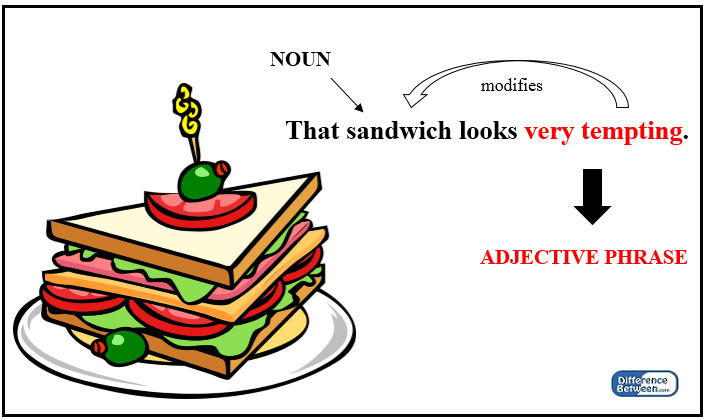The fundamental distinction between a noun phrase and an adjective phrase lies in their function; the noun phrase serves as a noun, while the adjective phase functions as an adjective. A phrase is a group of words that do not convey a complete thought. They are primarily used as parts of speeches and can be classified into several groups according to their function. Some of these categories include noun phrase, adjective phrase, adverb phrase, prepositional phrase, verb phrase, and infinitive verb.
Key Takeaways
- A noun phrase acts as a noun, while an adjective phrase acts as an adjective.
- A noun phrase can occur anywhere in a sentence as a subject, object, or complement, while an adjective phrase only occurs before or after a noun.
- The main component of a noun phrase is a noun, whereas the main component of an adjective phrase is an adjective.
What is a Noun Phrase?
A noun phrase is essentially a phrase that functions as a noun. A noun phrase typically includes a pronoun or a noun and its modifiers. The main word (head) in a noun phrase is a noun or a pronoun. Modifiers in a noun phrase can occur before or after the noun. The modifiers that come before the noun are articles, possessive pronouns, possessive nouns, adjectives, and/or participles. The modifiers that come after the noun include prepositional phrases, participle phrases, adjective clauses, and/or infinitives.
A noun phrase can act as a subject, object, or complement, just like any noun.
What is an Adjective Phrase?
An adjective phrase is essentially a phrase that functions as an adjective. Therefore, an adjective phrase provides information about the noun that it modifies. Some examples of adjective phrases include:
– I found a very small kitten.
– The lecture was extremely boring.
– He started a fund for children with heart defects.
– She wore a reddish-brown dress.
– I bought a cake decorated with green icing.
– Your offer sounds very tempting.
As evident from the above examples, the adjective is the header or the main component of an adjective phrase.
Similar to an adjective, an adjective phrase can occur either before a noun or after a noun. Thus, an adjective can act either as an attributive adjective or a predicative adjective.
What is the Difference Between Noun Phrase and Adjective Phrase?
A noun phrase functions as a noun, while an adjective phrase functions as an adjective. As a result, an adjective phrase modifies a noun, while a noun phrase functions as an object, subject, or complement in a sentence. Additionally, the main component of a noun phrase is a noun, while the main component of an adjective phrase is an adjective. Furthermore, a noun phrase can occur anywhere in a sentence, while an adjective phrase occurs before or after a noun.
Summary – Noun Phrase vs Adjective Phrase
The basic difference between a noun phrase and an adjective phrase is that a noun phrase functions as a noun, while an adjective phase functions as an adjective. Furthermore, a noun phrase can occur anywhere in a sentence as a subject, object, or complement, while an adjective phrase only occurs before or after a noun.
